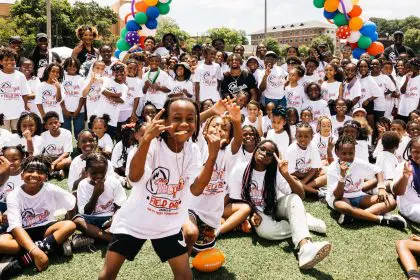On Sept. 4, Delta Air Lines opened applications for flight attendant positions for the first time in over a year, drawing an overwhelming response. The high demand caused the airline’s recruitment website to crash, underscoring the popularity of these roles.
However, this surge in interest contrasts sharply with a long history of racial discrimination, particularly against Black women, in the hiring process for flight attendants — a history that, while improving, continues to echo today.
A history of racial discrimination in the airline industry
For decades, Black people — especially Black women — faced immense barriers when applying for flight attendant jobs. This discrimination was deeply entrenched within the airline industry, where airlines often only hired White women to embody the idealized image of femininity, beauty and service. Black women — who were often relegated to domestic service jobs in white people’s homes at the time — were systematically excluded, not only due to racial prejudices but also because airlines often catered to predominantly white passengers who harbored racist views.
In the 1950s and 1960s, Black women filed lawsuits and participated in civil rights campaigns to fight for the right to work as flight attendants. The first Black flight attendant, Ruth Carol Taylor, was only hired in 1958 after a legal battle, marking a major step forward, according to the Smithsonian’s National Museum of African American History & Culture. However, it took many more years and continued advocacy before more airlines began to open their doors to Black applicants — and even then, progress was slow.
Delta Air Lines’ flight attendant recruitment surge
Fast-forward to 2024. Delta Airlines, one of the “Big Three” — alongside American Airlines and United Airlines — opened its recruitment for flight attendants, resulting in a flood of applications that overwhelmed their system. According to The New York Post, the sheer volume of applicants caused technical issues, making it difficult for many to submit their applications. Delta later issued an advisory, warning of delays in the process.
Despite Delta’s own tumultuous past — marked by challenges like a recent tire explosion at a maintenance facility in Atlanta and several reported racist incidents — demand for flight attendant roles remains high. Last year, Delta received 65,000 applications for just 5,000 positions, and the competition for this year’s openings is expected to be even fiercer.
The changing landscape for Black flight attendants
While Delta and other airlines have made significant strides in hiring more diverse candidates, Black flight attendants still face challenges rooted in the legacy of exclusion. Many are aware of the systemic barriers that once kept Black people out of these roles, and they continue to push for greater inclusion, better representation and fair treatment on the job.
The hiring surge at Delta reflects broader shifts in the industry, but it also serves as a reminder of the racial barriers Black applicants have historically faced. Today, Delta emphasizes diversity in its recruitment efforts and encourages applicants from all backgrounds to apply. Nevertheless, stories from Black flight attendants — both past and present — illustrate the progress that’s been made, as well as the work that remains.
Recruitment events and application requirements
Delta has announced plans to host recruitment events in several states, including Connecticut, Florida, Minnesota, New Jersey and Washington. These events will allow prospective candidates to learn more about the application process, work schedules, and benefits.
For those looking to apply, the requirements include having a high school diploma, being eligible to work in the U.S. and speaking fluent English. The airline also encourages bilingual applicants fluent in languages like French, Italian, Korean and German.
The application process
Delta’s rigorous application process includes five stages: an online application, a virtual assessment, a video interview, an in-person interview, and a seven-week training program for those who receive a conditional offer.

















